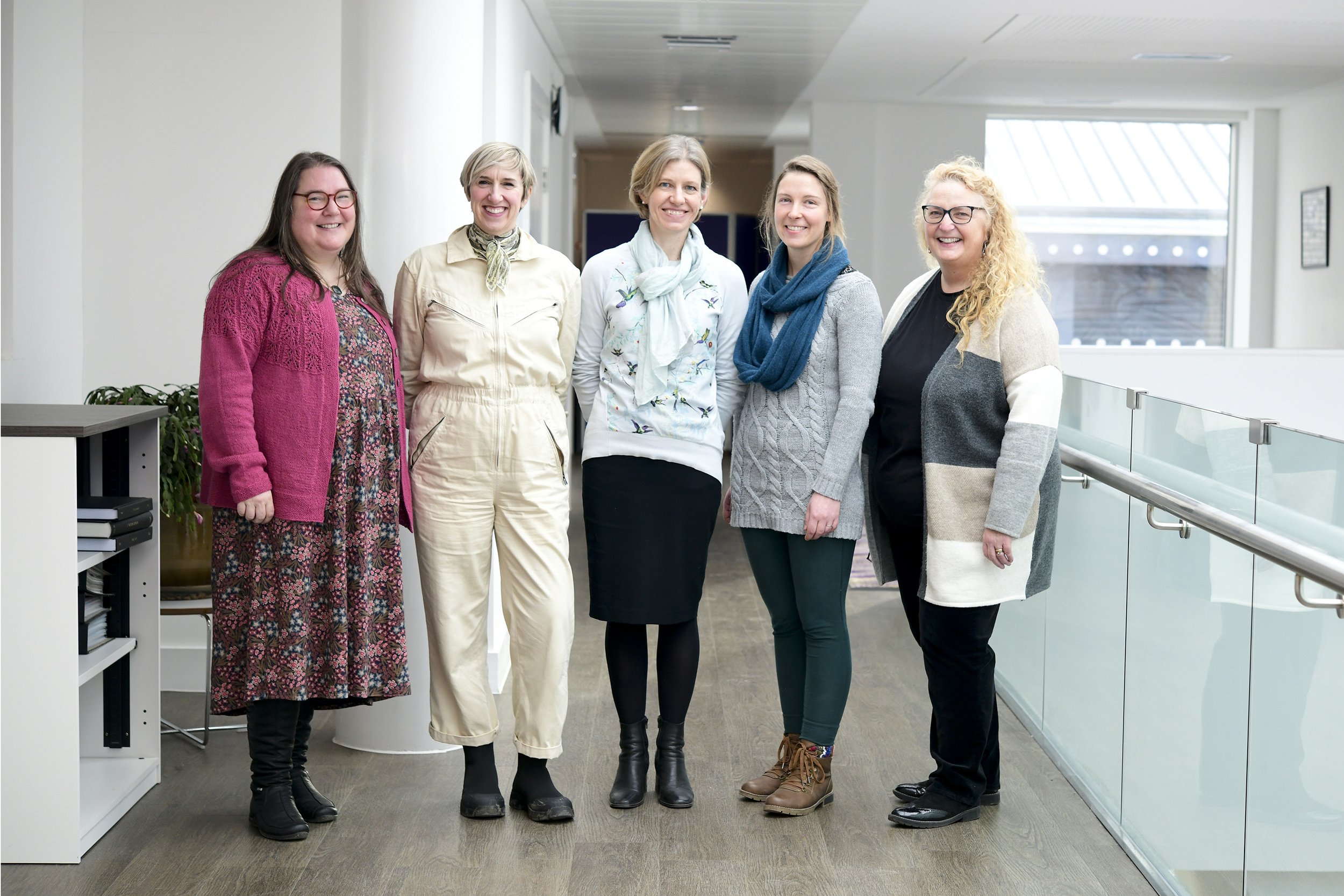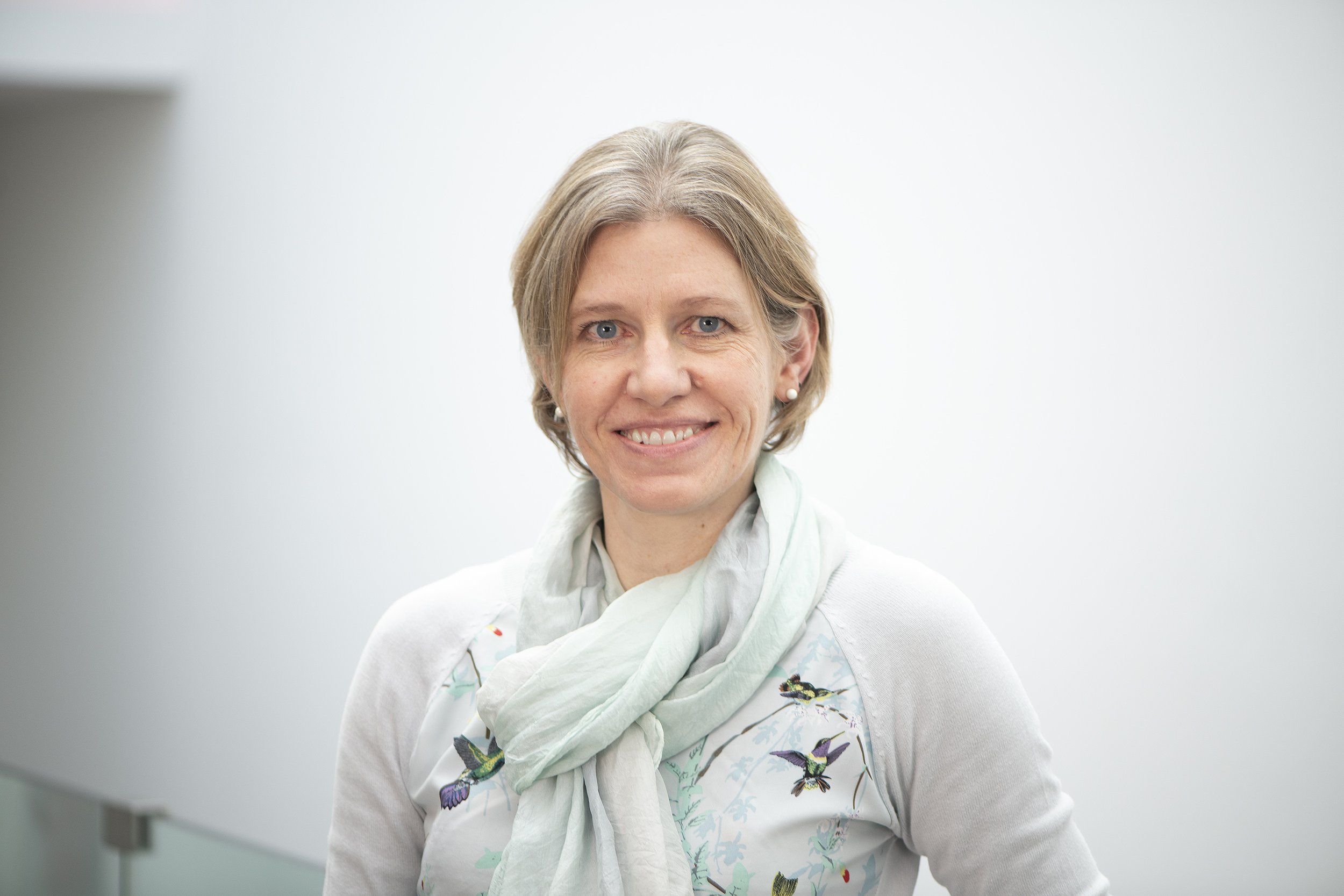Lack of sleep, endless skin irritation, itchiness and pain, frustration, decreased self-esteem and negatively impact quality of life. These are only some of the symptoms felt by those affected by eczema. Eczema is a very common skin condition affecting 1 in 5 children and 1 in 10 adults. There is currently no permanent cure, and available treatments can be ineffective, difficult to use and can make performing daily activities a challenge.
Surface Echoes is a resource that was developed over three years with input from creative professionals, arts and health researchers, working in partnership with individuals affected by eczema.
Read about how the project DEVELOPED
Meet the Team
Prof. Sara Brown is a clinical academic dermatologist, caring for patients of all ages with a range of skin diseases, but specialising in eczema. Sara’s research focuses on understanding how a person’s genetic make-up predisposes to the inflammatory skin disease atopic eczema and associated systemic conditions. The ultimate aim of Sara’s work is to define targets for the development of new and better treatments for people affected by eczema, dry skin and related allergic conditions.
Beverley Hood’s creative research work interrogates the impact of technology on the body, relationships and human experience through the creation of digital media and performance arts projects, and writing. She has extensive experience of collaborative work and project development involving a range of practitioners, including medical researchers, scientists, writers, technologists, dancers, actors and composers. Beverley’s work has been performed, screened and exhibited at leading international venues.
Dee Davision is the Public Engagement Manager at the Institute of Genetics and Cancer. She helps the staff and students within the institute to develop their science communication, public engagement skills and confidence so that they can start conversations and share their science.
Dr Alison Mayne is a researcher in everyday craft and wellbeing, with additional interests in digital communities and design for older people. She holds awards from Women’s History Scotland, The Pasold Fund and is a University of Glasgow 2020-22 Visiting Library Fellow, supported by the William Lind Foundation.
Eczema Outreach Support (EOS) is a charity that supports a membership of over 3000 families and individuals affected by eczema, providing a high standard of information, activities and peer-to-peer mentoring. In this project, EOS will enable an independent group of people affected by eczema to provide consultancy and co-development of the work for future public distribution and exhibition.
Dr Keira Tucker is the ASCUS Manager with a background in microbiology and experience in the delivery of public engagement projects. She is overseeing the communication of the project to public facing audiences.
Dr Lauren Kelly is the Brown Lab Dermatology Research Coordinator. She coordinates a range of research within the Brown lab and supports undergraduate medical teaching within NHS Lothian Dermatology. She has expertise in immunology & has worked in the academic, industry and charity sectors. Lauren has a breadth of public engagement experience and has worked hard throughout her career to ensure the patient voice is at the heart of research.















